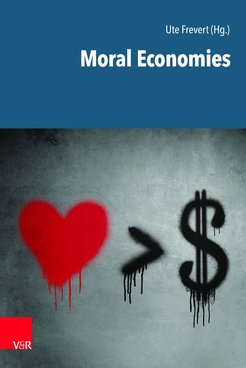Ute Frevert (Ed.), Moral Economies, Göttingen: Vandenhoeck & Ruprecht 2019. (Geschichte und Gesellschaft: Sonderheft No. 26).

Is there a moral economy of capitalism? The term “moral economy” was coined in pre-capitalist times and does not refer to economy as we know it today. It was only in the nineteenth century that economy came to mean the production and circulation of goods and services. At the same time, the term started to be used in an explicitly critical tone: references to moral economy were normally critical of modern forms of economy, which were purportedly lacking in morals. In our times, too, the morality of capitalism is often the topic of debate and controversy. “Moral Economies” engages in these debates. Using historical case studies from the eighteenth, nineteenth, and twentieth centuries the book discusses the degree to which economic actions and decisions were permeated with moral, good-vs-bad classifications. Moreover it shows how strongly antiquity’s concept of “embedded” economy is still powerful in modernity. The model for this was often the private household, in which moral, social, and economic behavior patterns were intertwined. The do-it-yourself movement of the late twentieth and early twenty-first centuries was still oriented towards this model, thereby criticizing capitalism on moral grounds.
